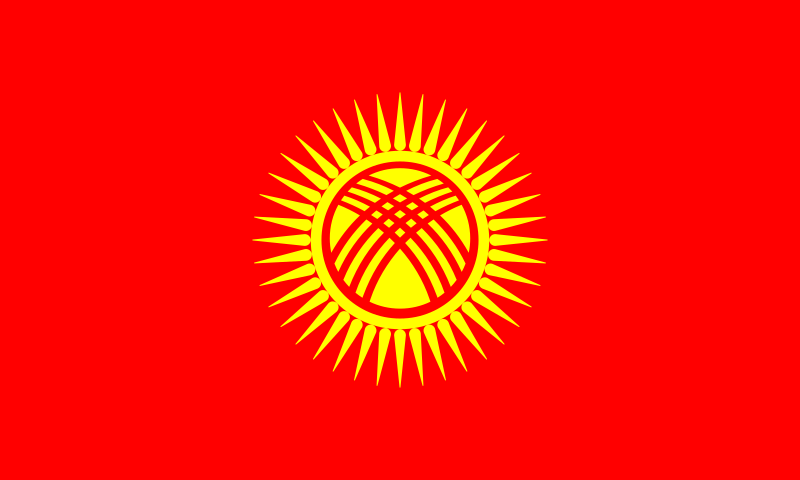The national flag of Kyrgyzstan is a striking red banner with a golden sun at its center, encircled by forty rays and a unique tunduk symbol in the middle.
Table of Contents
ToggleKyrgyz Flag: What Do the Colors & Symbols Represent?
- Red Background: The red color symbolizes bravery and valor, inspired by the legendary hero Manas, a central figure in Kyrgyz folklore.
- Golden Sun: The 40 rays represent the unity of the 40 Kyrgyz tribes that once roamed the region’s vast landscapes.
- Tunduk (Yurt Crown): At the heart of the sun is the tunduk, the central opening of a traditional Kyrgyz yurt, representing home, unity, and the nomadic way of life.

The Kyrgyz flag is a powerful emblem that connects the modern nation with its rich heritage, making it a unique national symbol that visitors can appreciate as they explore the country.
The History of the Kyrgyz Flag
Before adopting the current flag, Kyrgyzstan was part of the Soviet Union and used the Soviet Kyrgyz SSR flag, which had a traditional red background with a blue stripe and Soviet hammer and sickle emblem.
When the country gained independence in 1991, a new national flag was needed to reflect Kyrgyzstan’s unique identity, culture, and historical legacy.
The red background was inspired by the banner of Manas, the national hero of Kyrgyzstan, symbolizing courage and valor. The flag was officially adopted by the Supreme Council of Kyrgyzstan on March 3, 1992, making it one of the first national symbols of the newly independent country.
Discovering Kyrgyzstan: A Country of Stunning Landscapes and Rich Culture
Kyrgyzstan is a breathtaking travel destination, filled with towering mountain ranges, crystal-clear alpine lakes, and a deep-rooted nomadic culture. When visiting this hidden gem of Central Asia, you will see the inspiration behind the Kyrgyz flag reflected in the people, landscapes, and traditions.
Top Reasons to Visit Kyrgyzstan:
- Issyk-Kul Lake: The second-largest alpine lake in the world, perfect for relaxation, water sports, and stunning scenery.
- Song-Kul Lake: Experience authentic nomadic culture by staying in traditional yurts surrounded by untouched nature.
- Tian Shan Mountains: A paradise for adventure seekers, offering world-class trekking, horseback riding, and skiing.
- Bishkek and Osh: Explore vibrant cities with bustling bazaars, historical sites, and a mix of Soviet and traditional Kyrgyz architecture.
- Nomadic Traditions: Witness thrilling horse games like Kok-Boru and try Kyrgyz cuisine, including beshbarmak and kymyz (fermented mare’s milk).

